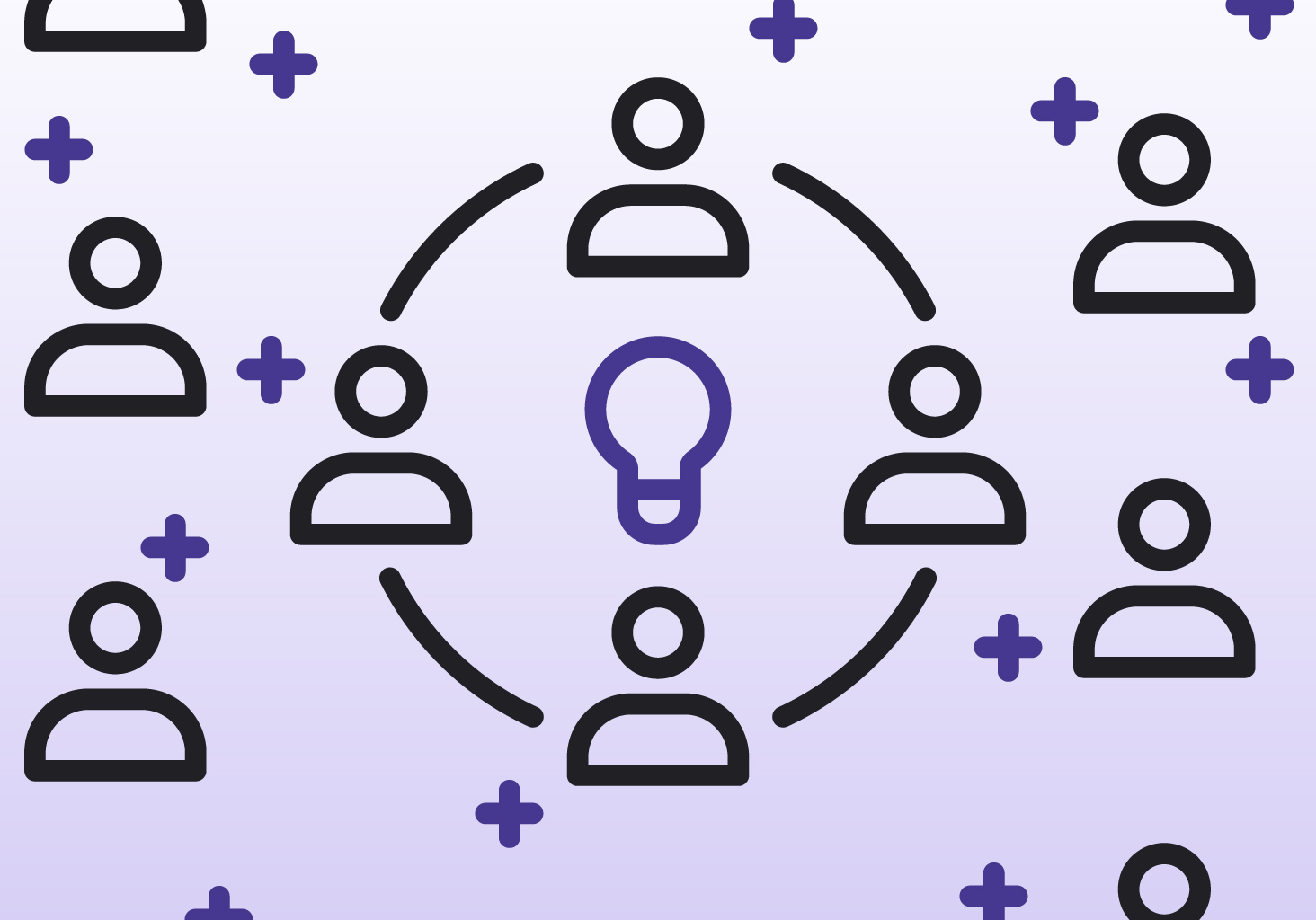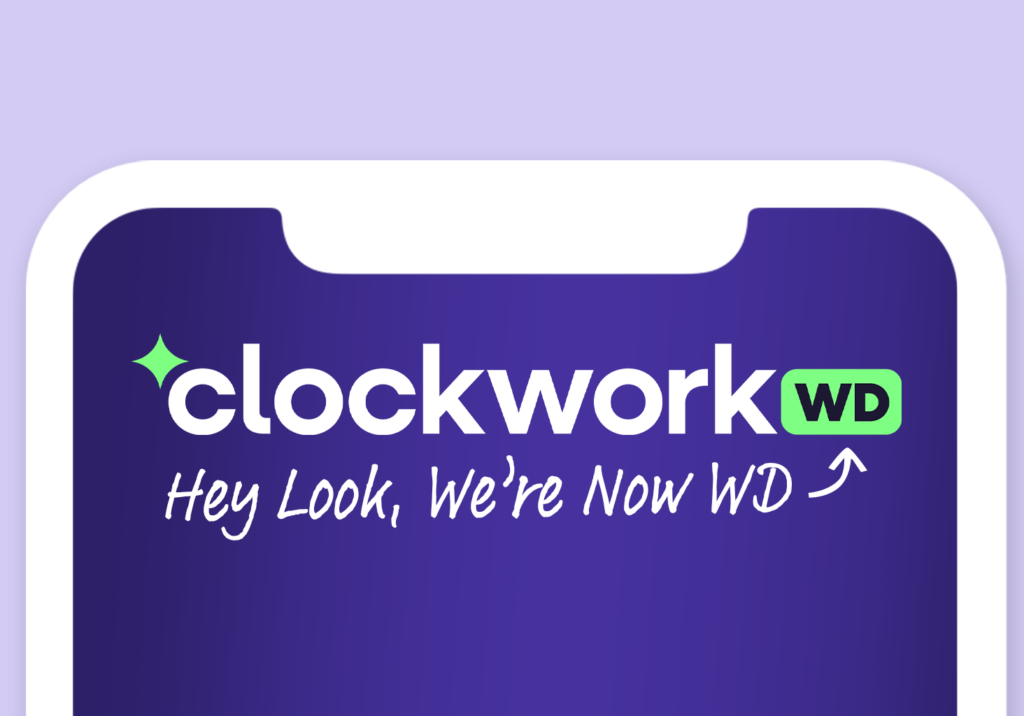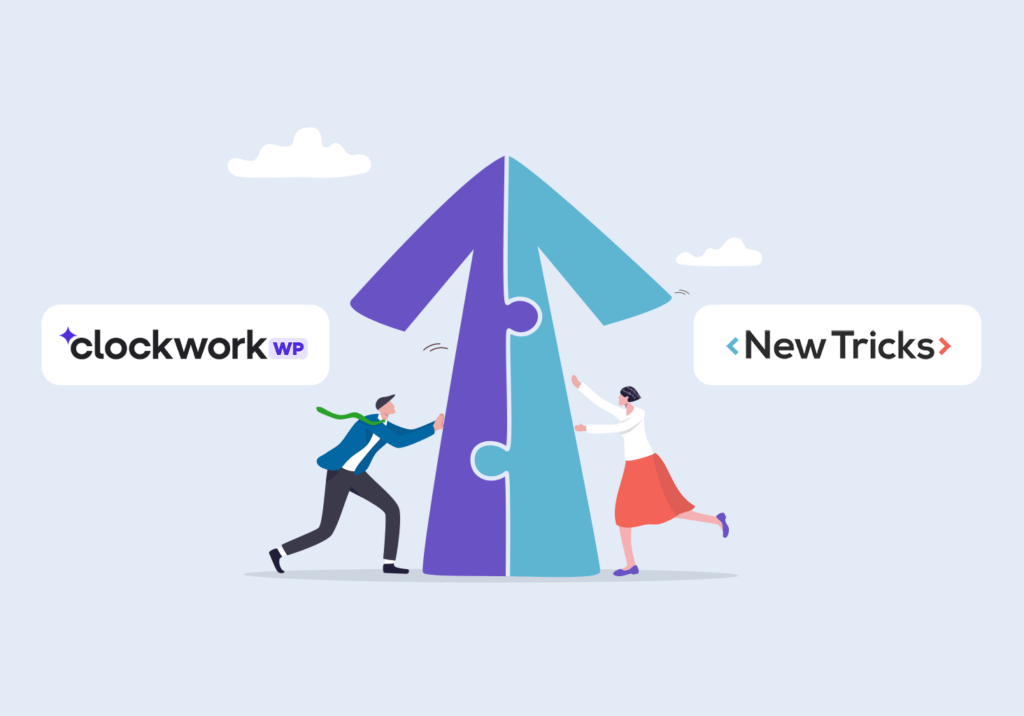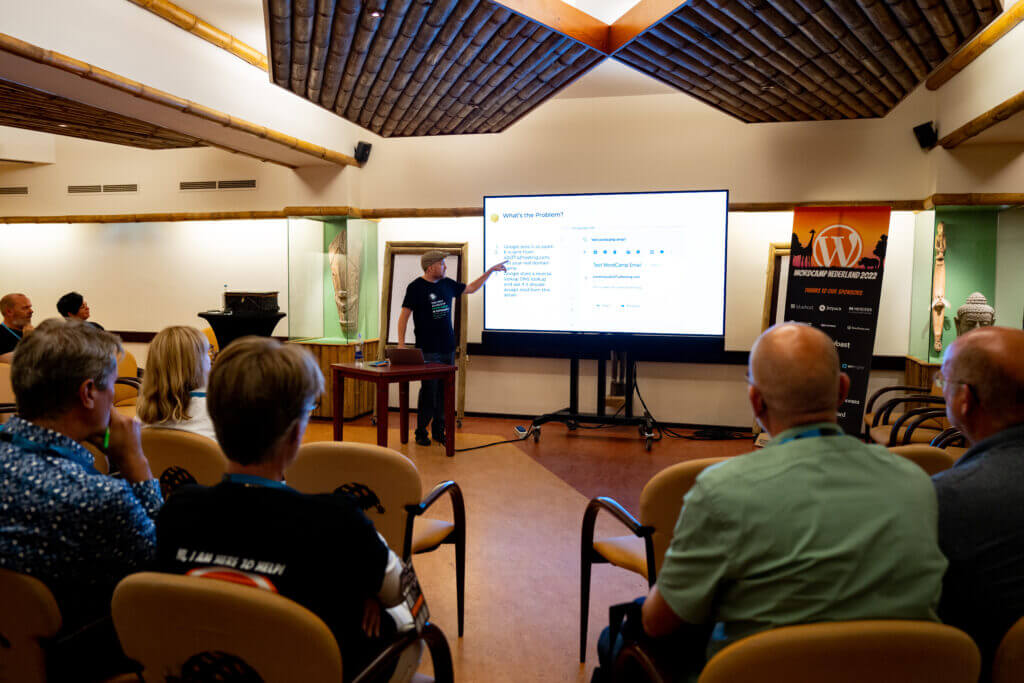When I stepped into my role as Chief of Staff at Clockwork in 2022, we were a close-knit team of four to five people with years of shared work experience. Our strong foundation and quality work eventually led to a flood of client referrals, making one thing clear: it was time to grow.
Fast-forward 18 months, and we’ve blossomed into an agency of 15-20 people, learning valuable lessons about scaling along the way. At WordCamp 2024, I joined Karena Kreger from Open Sky Agency to present “Scaling Your Agency: Lessons Learned the Hard Way,” sharing our journey of meeting growing demand while maintaining our lofty standards.
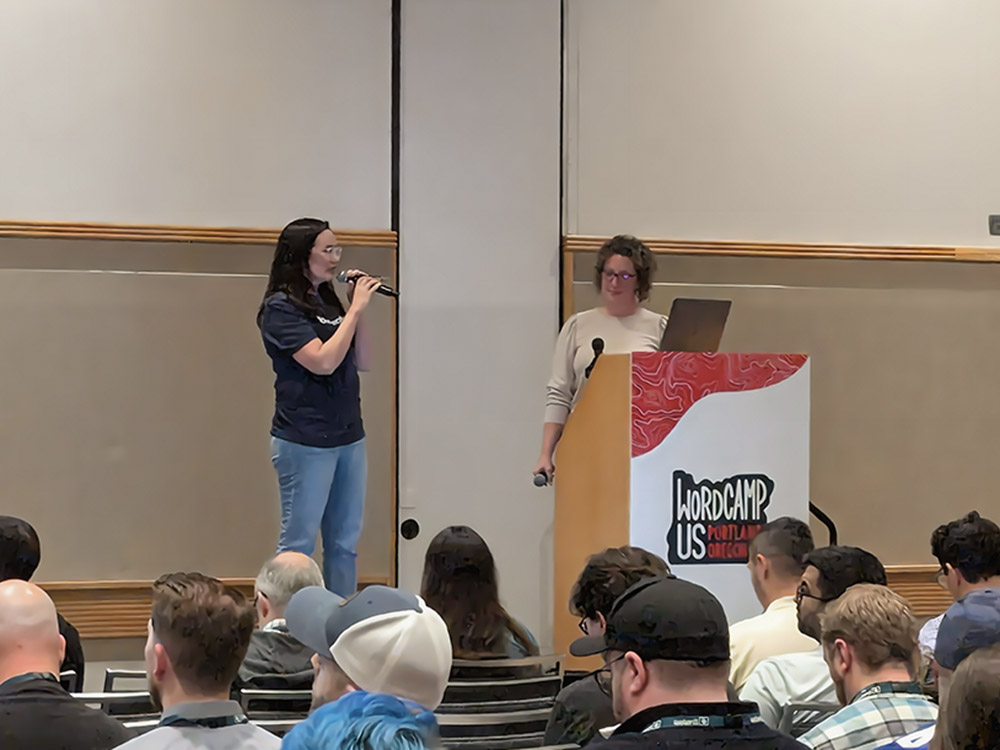
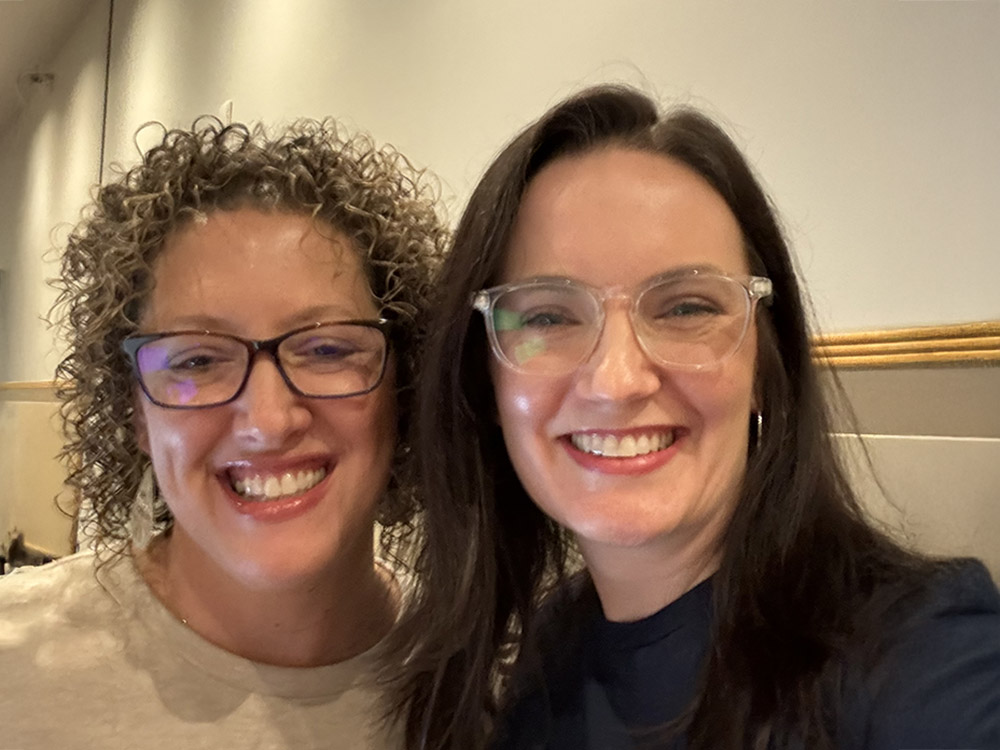
Starting with the End in Mind: The Personal Side of Scaling
Let’s start with something that often gets overlooked: scaling is deeply personal. While most agencies jump straight to strategy and processes, real growth begins with aligning your business to your life, values, and long-term vision.
We’ve lived this at Clockwork. After selling Sideways8, Aaron launched our agency in 2019. I helped get things started, took time for family, and returned in 2023 when we were ready to grow purposefully. This transition perfectly aligned with our top-down belief that business should support life, not consume it.
Before scaling, ask yourself:
- What stage of life are you in, and what lifestyle do you want?
- What are your personal values and dreams?
- Will you sell someday, pass it down, or close on your terms?
- How will these answers shape your team structure, pricing, and client selection decisions?
We saw the power of this intentional approach when Clockwork acquired New Tricks in 2024. Their advanced preparation and well-established systems demonstrated real value – proof that knowing your endgame shapes every aspect of your growth strategy. Whether you’re building to sell or planning to stay small, starting with clear intentions makes all the difference.
Team Building: Finding the Right People at the Right Time
The best paths aren’t always the easiest. The people who help you grow from one to three team members might differ from those who take you from four to fifteen. That’s okay – and probably healthy for long-term growth. Different growth stages require different skill sets and mindsets.
We focus on two critical aspects when hiring:
- Clearly defined roles with measurable success metrics
- Cultural fit that aligns with our values
We evaluate potential team members using “The Ideal Team Player” framework, which focuses on humility, hunger, and people skills. We’ve also found that starting with contractors before moving to full-time staff allows us to evaluate fit while managing long-term risk.
Along these same lines, go slow with your hiring. Don’t bring on four people at once, even if you need them all. Hire one person, get them onboarded, then move on. This approach might feel slower, but it prevents the chaos of multiple new team members all trying to learn at once.
Money Matters: The Foundation of Growth
Understanding your financials isn’t optional when others depend on you for their livelihood. Fortunately, there are plenty of affordable resources for learning, from Coursera to the US Small Business Administration, the Personal MBA, and QuickBooks guides.
At Clockwork, we maintain a scorecard that tracks things like:
- Revenue sources – Track how much comes from hosting, maintenance plans, project work, and hourly billing. We aim for 60% recurring revenue because that stability lets us plan better for growth and gives us the runway to keep a consistent team size.
- Monthly trends – Know your slow seasons (ours are July and December) to plan ahead for dips. Proactive planning can save you from stress later.
- Utilization ratios – Realistically, expect about 25-30 billable hours per person weekly, not 40 – this reality check will transform your pricing. Meetings, training, and other internal projects don’t generate revenue, but they are absolutely necessary.
- Profitability by service type – We found our custom web development projects had lower margins than maintenance plans. This data helped us prioritize high-performers.
And while talking numbers, don’t overlook the importance of a financial cushion when scaling. Those first few months with new team members are heavy on training and light on billable work. This is why we’ve built both strong cash reserves and solid onboarding processes.
Business Processes: Scaling Without Chaos
Another hard lesson was that scaling chaos just creates more chaos. Before bringing on new people, you need clarity on four things: what services you’ll offer (and won’t offer), how you’ll deliver them, who owns which processes, and how knowledge gets shared across the team.
At Clockwork, we maintain what we call a ‘No List’ to help guide our service decisions. For example, we don’t currently offer social media strategy services, though we are open to adding that in the future when we find the right team member. The ‘No List’ is a tool we use to focus on what we do best instead of trying to be everything to everyone.
This lets us focus on our wheelhouse:
- Custom web development
- High-quality WordPress hosting
- Custom web design services
- Enterprise-grade SEO services
- WordPress maintenance and security
- Web accessibility solutions
Having clear services is important, but understanding why we do things matters more. Take our discovery calls: when we ask about project timelines, we’re not just planning dates. That information helps us make sure we have the right resources available and can deliver what we promise. It’s how we set realistic expectations.
This focus on “why” over “how” has paid off. For example, our team members feel empowered to improve our processes because they understand the reasoning behind them. One Project Manager recently rebuilt our entire estimation process, while a developer created a dashboard for monitoring client sites. When your team gets the why, they can help make things better.
Culture: The Glue That Holds It All Together
Remember those two critical aspects of hiring we discussed – clear roles and cultural fit? Culture is where that second piece really comes to life. Building a strong remote culture takes intentional effort, but we’ve found that small, consistent actions make the most impact.
For us, it starts with language. We shifted from “I” to “we” when talking to clients – a simple change that builds team ownership. During meetings, we keep our cameras on to maintain real connections, celebrate personal and professional wins, and send care packages during tough times. These might seem like small gestures, but they create an environment where people genuinely want to stay engaged – even from a distance.
This isn’t just about being nice but also about creating a rock-solid foundation for sustainable growth. When your team feels valued and connected, they’re more likely to embrace (and even help improve) the all-important processes we discussed earlier.
Building Your Shield: Legal, Security, and Support for Agencies
As you scale, protection becomes more complex than just having good contracts. We learned this early with client protection. While many agencies default to non-compete clauses, we found non-solicitation agreements more effective and enforceable. Similarly, password managers like Bitwarden and 1Password streamlined security governance, letting us instantly manage access across client accounts as our team evolved.
Remember the processes from earlier? They’re your first line of defense. But as you grow, you’ll need to build a professional support network too. Here’s what moved the needle for us:
- A tech-savvy attorney who updates our contracts and agreements as we enter new markets
- Insurance agents who understand digital business risks and coverage needs
- Financial experts (from bookkeepers to fractional CFOs) who help us spot issues early
- A business coach who helps develop leadership skills and shares growth patterns
Documentation ties this all together. Beyond just writing down steps, we maintain living resources that detail our client procedures, service boundaries, and emergency protocols. Like our other process documentation, our goal is to review these quarterly to stay on top of everything.
From Doer to Leader: Parting Words for Growing Agencies
The hardest part about scaling our agency wasn’t what I expected. It wasn’t the hiring or the processes – it was learning to be a leader instead of a doer. Here’s what I’ve found works:
- Let go of the day-to-day work but not the vision. Your job is to guide the team, not do their jobs for them.
- Build trust through clear processes, not micromanagement. Well-established systems that stay flexible let your team flourish in their own way.
- Focus on serving clients through your team instead of directly. If you’re still handling every crisis, you haven’t really scaled.
- Perfect is the enemy of growth. Your team might do things differently, and that’s okay.
Looking back, both successes and stumbles have strengthened us. What matters most is being intentional about your growth – build processes early, hire slowly, know your numbers, and create a culture reflecting your values. Your future self (and team) will thank you.
This article is based on my presentation at WordCamp US 2024. If you’d like to explore any of these topics further, please don’t hesitate to contact us.

